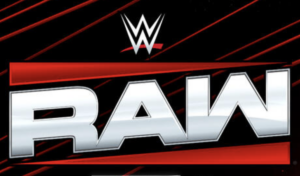
When Greater Western Water launched its new $103.7 million billing system, it promised a seamless experience for the 1.43 million Victorians relying on its services. However, the transition has turned into a protracted fiasco, costing the public authority an estimated $150 million in compensation and written-off bills. The system, which was supposed to be operational by May 29, 2024, has been marred by errors, and the resolution is now expected by June next year.
A taskforce of 23 people spent six months preparing customer data for the changeover, and a “tiger team” was tasked with identifying and managing risks prior to the launch. Despite these efforts, the transition was plagued by incomplete preparations and inadequate testing, leading to widespread billing errors and customer dissatisfaction.
Unfinished Plans and Testing Shortcomings
The plan to manage billing and customer details was not finalized, and four practice runs lacked comprehensive end-to-end testing. A checklist used during the transition downplayed the severity of known issues, contributing to the 16-month-long debacle. Greater Western Water’s new chief executive, Craig Dixon, who took over in August, acknowledged the shortcomings and emphasized the priority of resolving billing issues.
“I think there’s been shortcomings by multiple parties. Certainly, we are considering our options,” Dixon stated, hinting at potential legal actions to recover costs once the system is fixed.
The Origins of the Debacle
The issues trace back to a 2021 merger between City West Water and Western Water, which aimed to create a new authority serving areas including the CBD, inner north, Footscray, Werribee, Sunbury, and Melton. The merger required the integration of two outdated data systems into a new platform, CustomerPlace. However, the transition was fraught with errors from the start.
A report by former senior bureaucrat Claire Noone highlighted that the system did not function as designed upon its launch in May 2024. The errors affected thousands of customers, including 11,000 concession cardholders who did not receive their discounts, and 18,000 others who were overcharged.
More than 11,000 concession cardholders did not receive discounts, and another 18,000 were overcharged. At least 320 privacy complaints were filed due to personal details being exposed.
Customer Impact and Response
The billing errors had significant repercussions for customers. Nearly 10,000 apartment dwellers received incorrect bills, and at least 320 individuals had their personal information exposed, raising concerns about identity theft and privacy, especially for those affected by family violence.
Direct debit customers faced additional issues, as they were not informed of deductions or had incorrect amounts withdrawn. This led to the suspension of the direct debit function, which remains inactive, causing some customers to accrue unpaid bills unknowingly.
Property transactions and development applications also experienced delays due to the system’s failures. Tony Way, a Richmond resident who had part of his bill written off, expressed skepticism about the promised improvements, stating, “There appears to be no end in sight. What a circus.”
Efforts to Rectify the Situation
Greater Western Water has manually corrected errors in 320,000 records, yet the full extent of inaccuracies remains unknown. Dixon remains optimistic about identifying all issues, with DB Results and other vendors working on the fix.
The saga underscores the systemic errors made throughout the project. A “data cleansing taskforce” was established in November 2023 to address missing information and inconsistencies. However, the rush to meet deadlines led to the abandonment of critical validation rules, resulting in unprepared accounts being loaded into the new system.
Initial budget for the new billing system was $103.7 million. $16.3 million already spent in waived bills and hardship credits. Another $130 million proposed in compensation and written-off bills.
Lessons and Looking Forward
The Greater Western Water debacle serves as a cautionary tale about the risks of inadequate preparation and testing in large-scale system transitions. The lack of a contingency plan to revert to legacy systems exacerbated the situation. Despite the challenges, Dixon refuted claims that the focus was on revenue over customer service, asserting that the failures were not intentional.
The Energy and Water Ombudsman Victoria reported a surge in complaints, with five times the usual number received in the year ending June 30. The authority has since bolstered its customer service team to manage the fallout, adding numerous full-time and temporary staff.
As Greater Western Water continues to address the issues, the focus remains on ensuring that customers are not financially burdened by the failures. The authority’s commitment to resolving the debacle and preventing future occurrences will be closely watched by stakeholders and the public alike.





